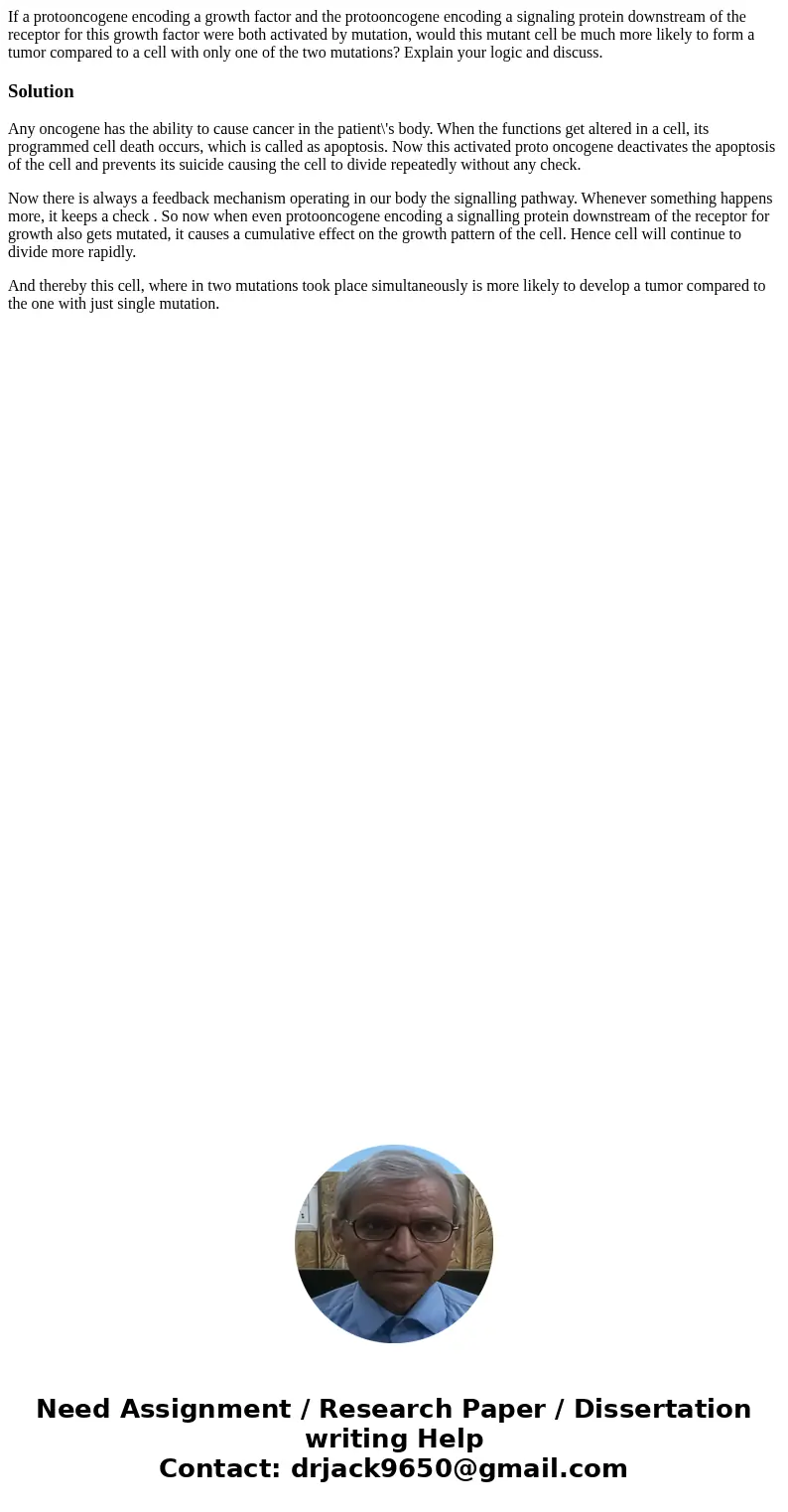If a protooncogene encoding a growth factor and the protoonc
If a protooncogene encoding a growth factor and the protooncogene encoding a signaling protein downstream of the receptor for this growth factor were both activated by mutation, would this mutant cell be much more likely to form a tumor compared to a cell with only one of the two mutations? Explain your logic and discuss.
Solution
Any oncogene has the ability to cause cancer in the patient\'s body. When the functions get altered in a cell, its programmed cell death occurs, which is called as apoptosis. Now this activated proto oncogene deactivates the apoptosis of the cell and prevents its suicide causing the cell to divide repeatedly without any check.
Now there is always a feedback mechanism operating in our body the signalling pathway. Whenever something happens more, it keeps a check . So now when even protooncogene encoding a signalling protein downstream of the receptor for growth also gets mutated, it causes a cumulative effect on the growth pattern of the cell. Hence cell will continue to divide more rapidly.
And thereby this cell, where in two mutations took place simultaneously is more likely to develop a tumor compared to the one with just single mutation.

 Homework Sourse
Homework Sourse